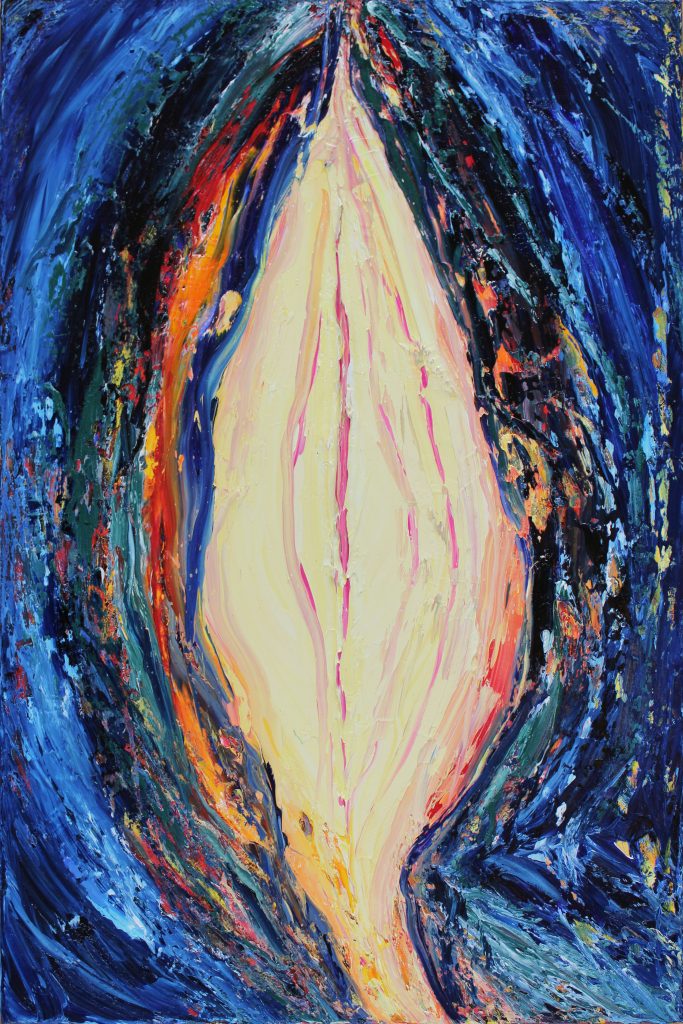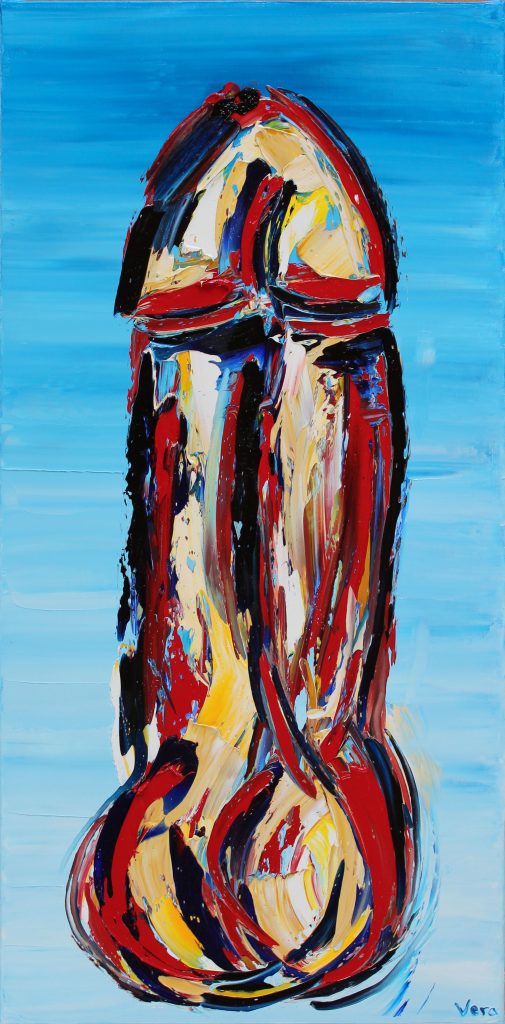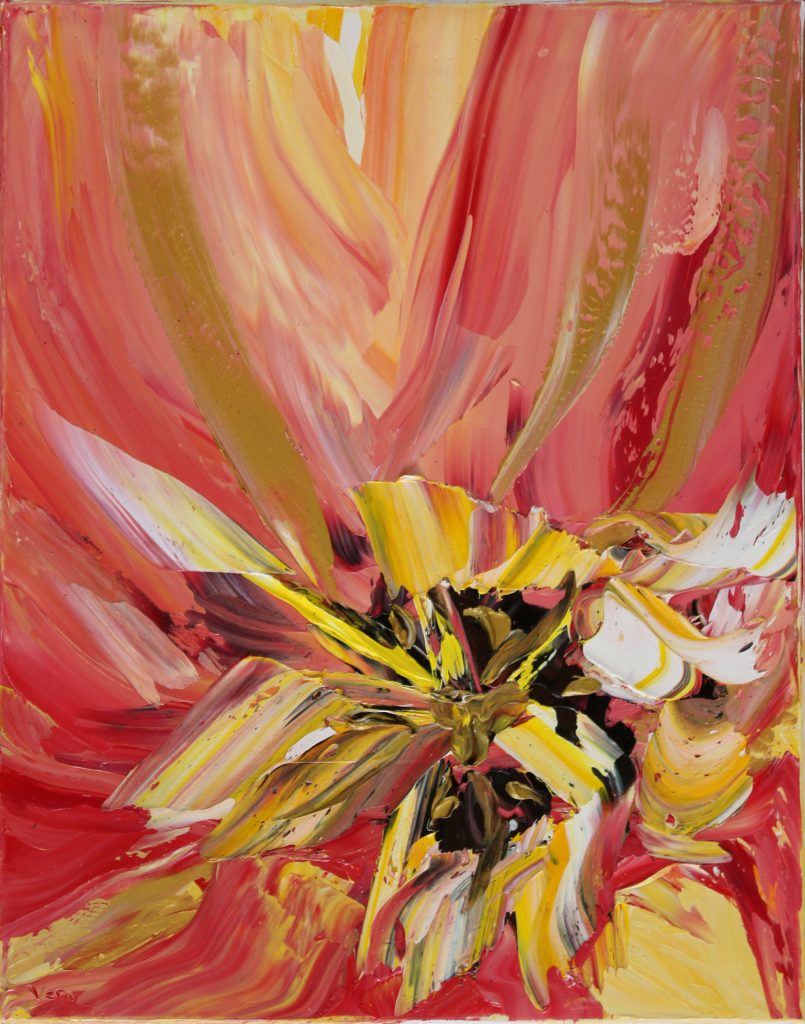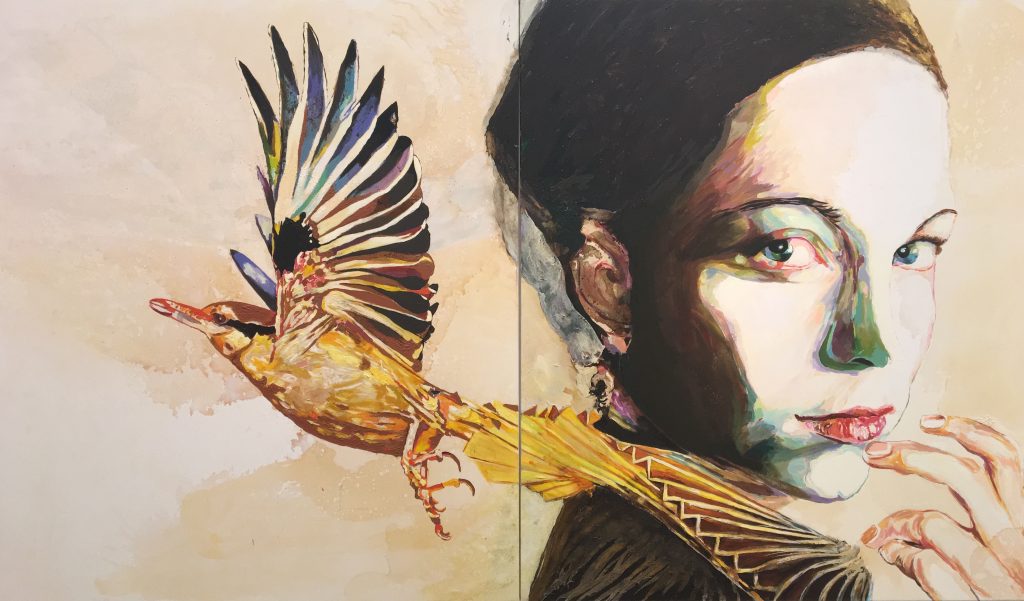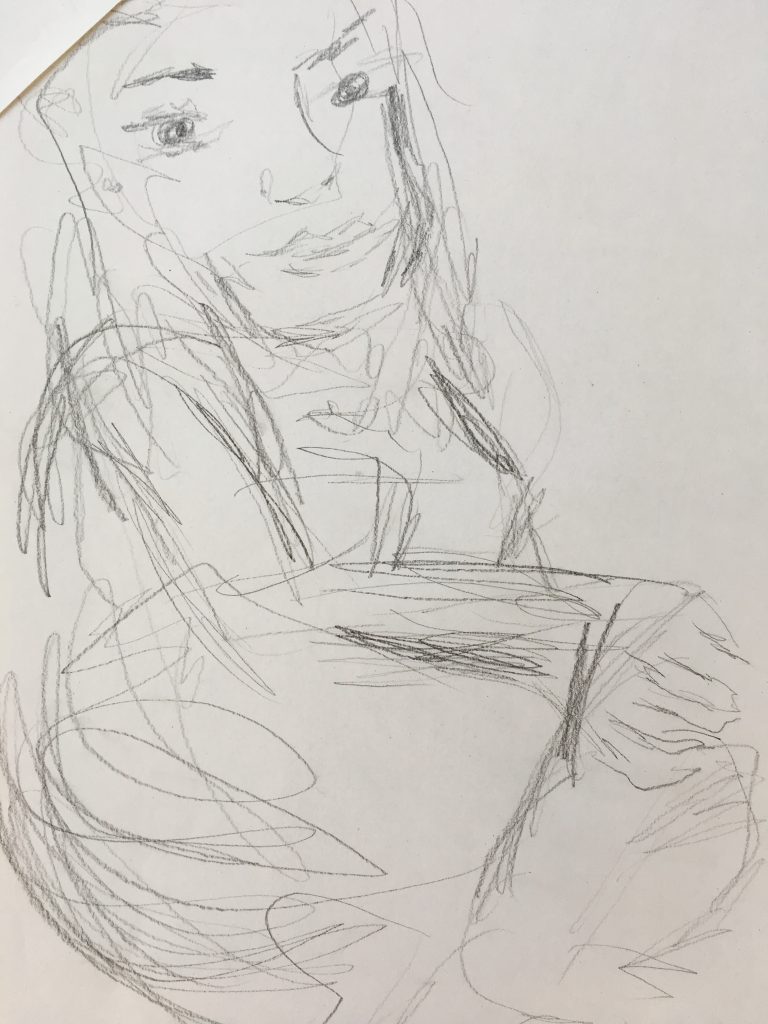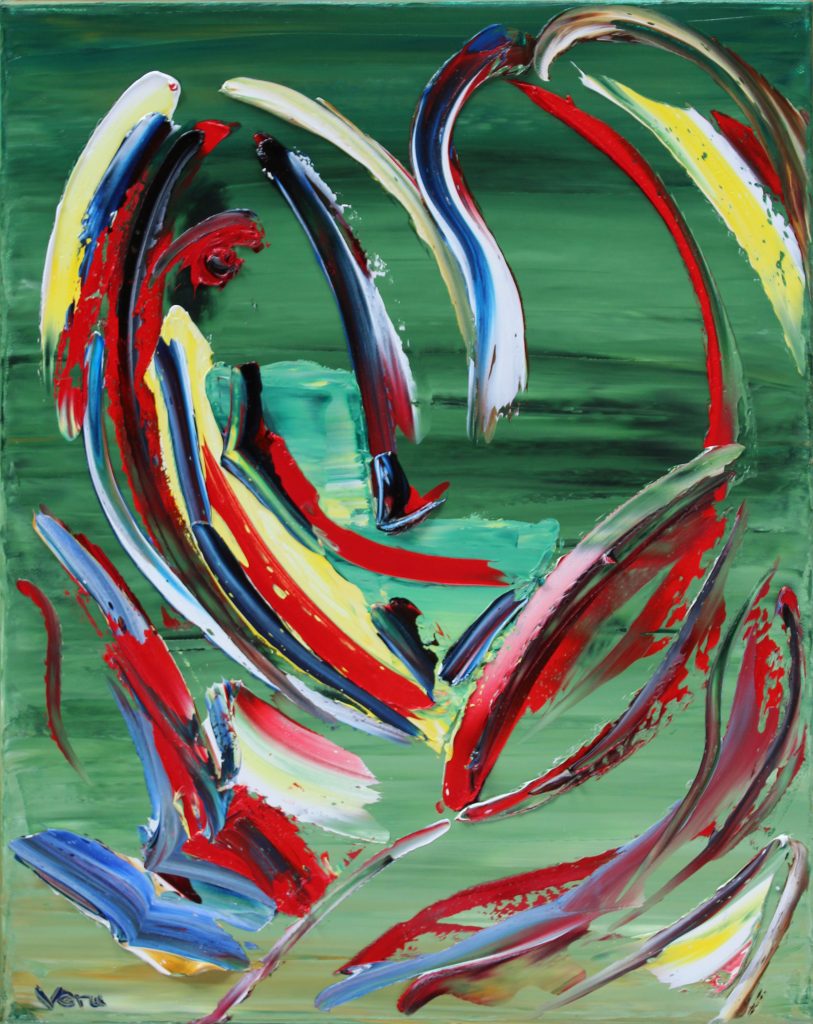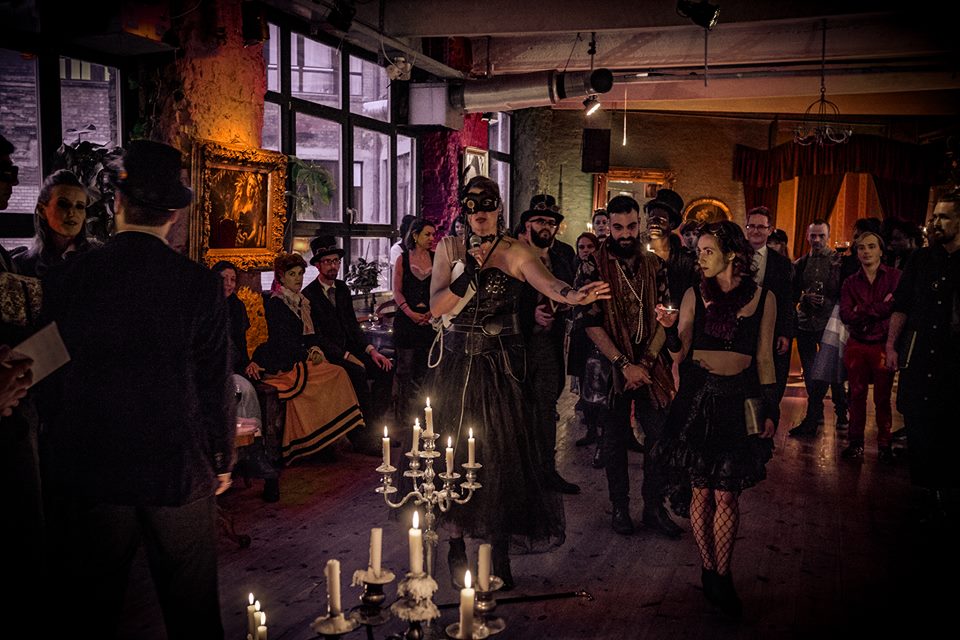
Photo: Philipp Bögle.
Poetry Brothel Berlin launched last week, thanks to writer and Madame Nathalie Dewalhens‘ years-long masterminding, show shepherdess Jos Porath’s careful herding, and a whole lot of creativity and effort from a whole lot of other talented people. I had so much fun. Friends are still thanking me for the invite, some saying it was the best party they’d been to—combining high art (e.g., opera, naked cello, classical piano) with intimate poetry readings and a generally informal atmosphere, with fancy costumes and lots of moving around, different things going on… We imagined it might be what the theater was like in Shakespeare’s day, when what we now consider high art was actually mass entertainment and people moved around being social (eating, drinking, talking, flirting) while enjoying it. It had that vibe of “something special is happening and I am here for it—and damn, is it fun.”
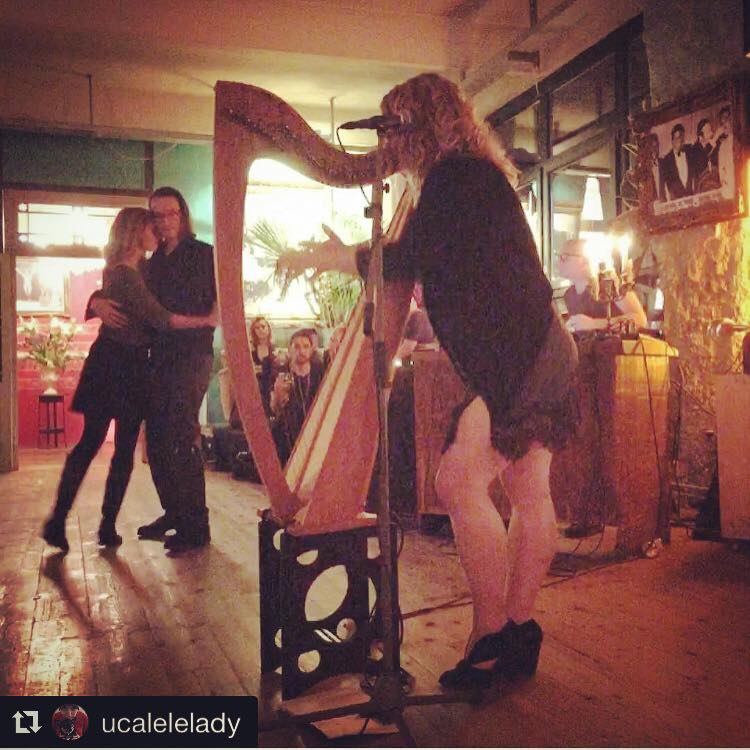
Photo: @ucalelelady.
There were too many remarkable artists to name. Among others, I had the pleasure of meeting an amazing singer and harpist, and experiencing her perform. If you don’t know Gillian Grassie—you will. She plays the harp like a jazz pianist plays the keyboard. And sings her own stuff with the voice to match. She made me wish we already had in place the technology that will be common in 10 years, where LED screens form a sort of a word threshold over live performers so you can read the lyrics (coming on the left, current above, just done on the right) as they sing. So as you’re gobsmacked by the beauty of the music and the performance, you can also get every word. It also made me grateful we didn’t have time for my own singing…
Although I prepared my two current favorite poem-songs (Raggedy Thing and Stain Louis) to sing with the pianist, I didn’t sing during the Brothel performance. My wonderful singer friend and vocal coach Ines Theileis helped me be sure I was ready the day before… With her guidance, I can hear my voice get where it can get, and feel I could carry a room like that with my back open, the right bits relaxed and tensed in turns, swell where it needs swell and soft where soft goes. Or, as Zadie Smith as Lady Day says in The New Yorker this week:
something in the modulation of your throat leaps up, like a kid reaching for a rising balloon, except most kids miss while you catch it—yes, you catch it almost without expecting to—landing on an incidental note, a perfect addition, one you never put in that phrase before, and never heard anyone else do, and yet you can hear at once that it is perfection. Perfection!
But the evening as a whole was unrehearsed, and I didn’t get a chance in the flow of it to do that thing among my things. It might bear mentioning here that I attempted to do everything I could conceivably get away with doing: I came early and left late, washed windowsills before, tried to get the very drunk girl home safe after, and brought my sweet hot man for sound engineering in-between. One artist was sketching, so I brought a pad and pencil, and sketched. Poets were reciting, so I prepared a performance manuscript and recited. When I learned at the planning meeting there would be music, I tried collaborating with the pianist to join in that, too. I am a greedy, hungry artist, and I want all the things.

Photo: Nathalie Dewalhens. This is btw how amazing the Tangoloft normally looks.
So I came home and (after sleeping something like 12 hours?!) started learning Noteflight, a program that does many music things I’ve dreamed of for years. It closes the loop between hearing something that sounds right, and writing it in proper music notation to play with rewriting and then learning it. It closes the loop between hearing something and transcribing it for a different instrument or key (like I’ve been dying to do Tori Amos-style with a few Rage Against the Machine songs). And it closes the loop between my chicken scratch music notation that I like to draft stuff in, and the proper staff notation that I like to learn/read music in. I’m hoping my song binder that I left in Boston when I left the U.S. will get here someday, and then I can properly notate and revise/relearn some old favorites I wanted to work on some more (e.g., “Warm Tidings,” a Christmas song about climate change, and my song version of Emily Dickinson’s poem “Hope“).
It will be better to perform these poem-songs when I have my own, proper piano accompaniment written, rewritten, and learned, with the help of Noteflight, to play myself while I sing. And at that, probably at an open mic, where I can play with my performance anxiety among other people who are afraid they’ll manage to light themselves on fire while choking at the same time. (After hearing me laugh out loud at myself imagining this outcome in vivid detail while attempting to take a much-needed nap, my ridiculously sweet boyfriend developed a two-tier plan for what he would do if that happened… ) There are performers who are consummate musicians first. And then there are performers who are poets, and some of their songs happen to have melody and need to go through the whole process of coming out that way; and I am the latter. But I still need to do it and do it right.
I did a lot of preparation like that, that was probably more for me as an artist than for this one night. Like printing out and reading through a performance manuscript of the best of my old and new poetry, so I could perform it not off-book but with a felt sense of it, fresh. This all resulted in me having a short introductory poem (“Raggedy Thing”) memorized to perform at the beginning of the Brothel, as the Madames introduced their Poetry Whores. Some “customers” wanted my website to find what I had read them and see more of my work. One group made my night returning at the end to tell me that my performance was the highlight of their evening. Maybe it was just for this one night, but maybe the Brothel will have other performances… Plus, now I have a performance poetry book to take to open mics, that looks nicer than sheets of paper.
Also, I managed to not light myself on fire while choking in front of 100+ people.
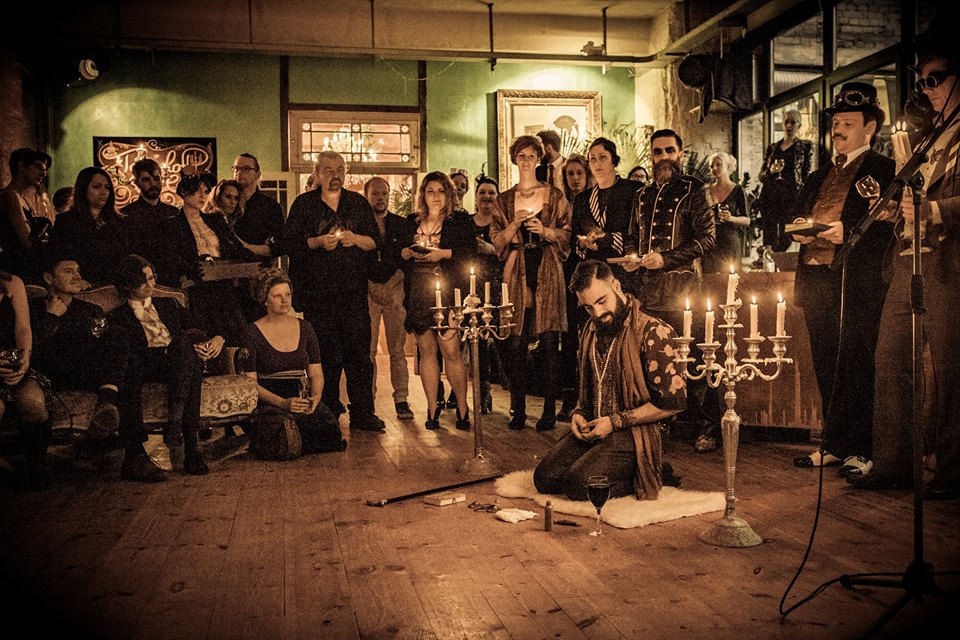
Photo: Philipp Bögle.

